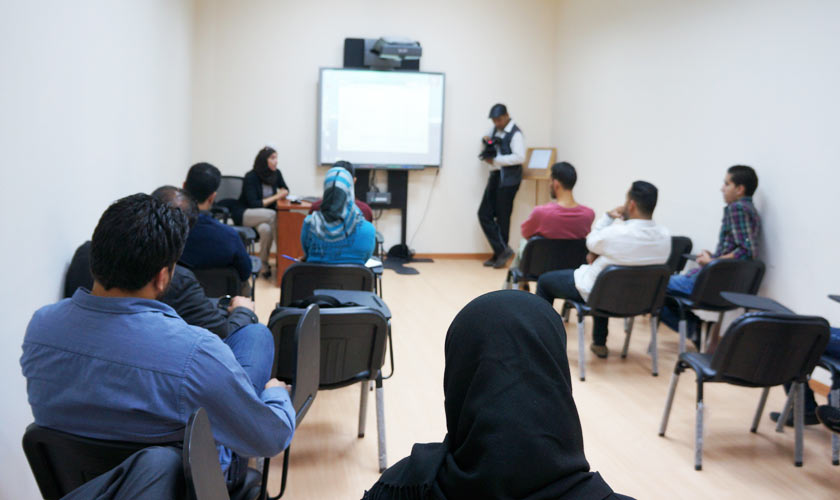
After a popular revolution in 2011 ended four decades of autocratic rule in Libya, the overwhelming majority of Libyans supported the transition to democracy. But by mid-2013, confidence in the country’s new democratic process was evaporating rapidly, and growing violence marked by political assassinations, kidnappings, and ongoing clashes between militias and security forces further undermined attempts to form a new Libya.
Elections were scheduled to elect a Constitutional Assembly, a 60-member body to draft a new constitution. Ensuring the election was legitimate required broad representation from across Libya’s expansive geography and its diverse ethnicities and tribes. Given the country’s mobile phone penetration, the government sought to guarantee that every citizen could register to vote via text message (SMS), and the mandate fell to HNEC to ensure adequate platforms and tools to facilitate an inclusive election. Additionally, with an estimated 800,000 citizens living abroad—many of whom had emigrated under Muammar Gaddafi but now sought to participate in Libya’s new democracy—HNEC sought to enable the diaspora’s participation as well.
Working in partnership with the United Nations Support Mission in Libya and the International Organization for Migration, HNEC engaged Reboot to design and deploy an enterprise-scale electronic data management system to meet the challenge. Reboot then brought in a team of expert consultants, including development firm Caktus, to build the technical components supporting the initial system. The system needed to register voters both in-person and out-of-country via SMS and online. Wide variations in the level of sophistication in the local telecommunications infrastructure and a lack of local technical resources called for creativity on our part as we developed an appropriate, resilient solution. To support the system’s successful implementation and future sustainability, Reboot was also asked to provide maintenance and administration support through the election cycle and to train government officials in the system’s ongoing use.
NEXT
APPROACH




